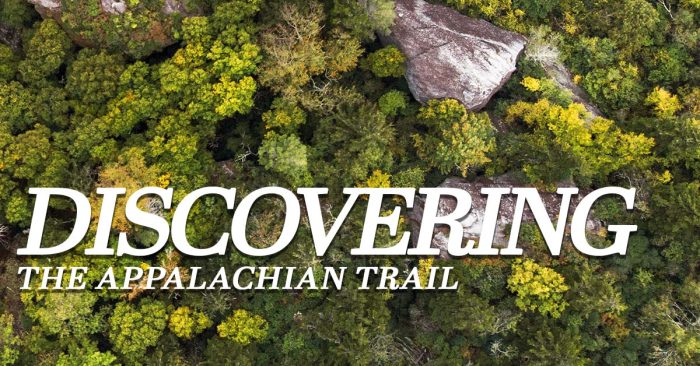Discovering the Appalachian Trail

Discovering the Appalachian Trail
Those born west of the Mississippi River may never have heard of it. Even those born in the eastern half of the country may be unfamiliar with it. It is an interesting and vital part of the Appalachian Mountains that spans from Georgia to Maine. It is the Appalachian Trail, and it is impressive.
There have been those who have traveled it in one lengthy trip while others have spent years taking it on section by section. For some, it has served as inspiration and others, a life-changing mission.
This walking/hiking trail has its southern terminus at Springer Mountain in Georgia and its northern terminus at Katahdin, Maine. That is a total of 2,190 miles, and each year thousands of people make the decision to take on the challenge, all, or in-part.
What’s the attraction? What can hikers expect along the way? What are the dangers and what should one take along? There is so much to learn about the Appalachian Trail.
The trail is managed by the Appalachian Trail Conservatory and is the longest hiking-only trail on the planet. While the trail is visited by an estimated 3 million people annually, relatively few attempt the “thru-hike”, which is planned completion within a year. About 3,000 people annually will attempt the thru-hike.
The trail is part of the National Park System and construction started in 1925 and wasn’t completed until 1937. Today, it is maintained by a public-private partnership that includes dozens of trail-clubs along its route. The goal of the Conservatory is to maintain the trail, empower those who may choose to use it and educate others about the trail and its benefits. It quietly sits along the Appalachian Mountains, an under-appreciated part of the American landscape.
People are attracted to the trail because it is one of a kind. Hikers can become a part of something bigger than themselves and perhaps even accomplish an exceptional goal. They can experience stunning, one of a kind views, see birds and wildlife and rely on themselves like never before in their lives.
One doesn’t have to be a thru-hiker to enjoy some of the most beautiful views along the trail. Their names are as intriguing as the stunning views offered. They include The Pinnacle in Pennsylvania, McAfee Knob in Virginia, Clingman’s Dome in Tennessee, Dragon’s Tooth, Virginia, Baldpate, Maine and others.
Thru-hikers will learn quickly to live only with necessities. Most only take two pairs of underwear and socks or less and pack extremely light. A thru-hike will likely cost about $1,000 per month per person for various items and camping. If you anticipate a seven-month hike, have access to $7,000.
Even shorter distance hikers may encounter a variety of squirrels, chipmunks, deer, black bear, porcupine, rabbits and a variety of birds and reptiles.
If the thought has captured your interest, there are plenty of resources online including an interactive map. Hikers should obviously be in good physical condition and most of all, be prepared for their adventure.
Are you prepared for the challenges of everyday life? Auto, homeowners, life and business insurance can help. Contact us for a no obligation quote today.











